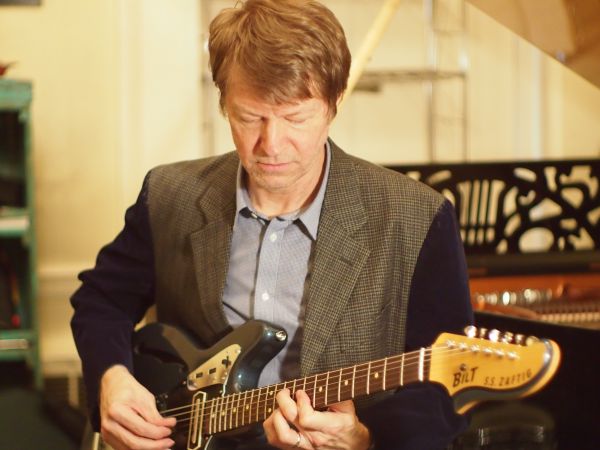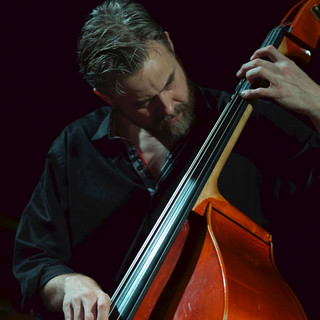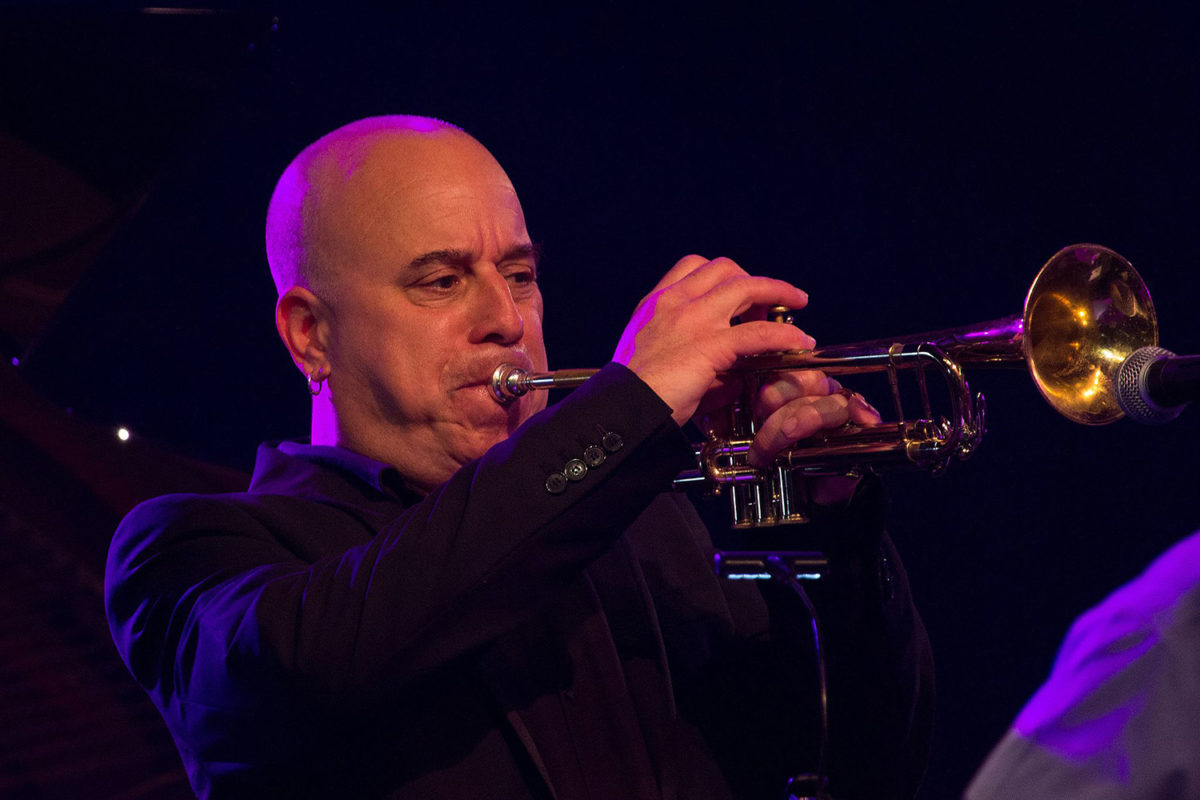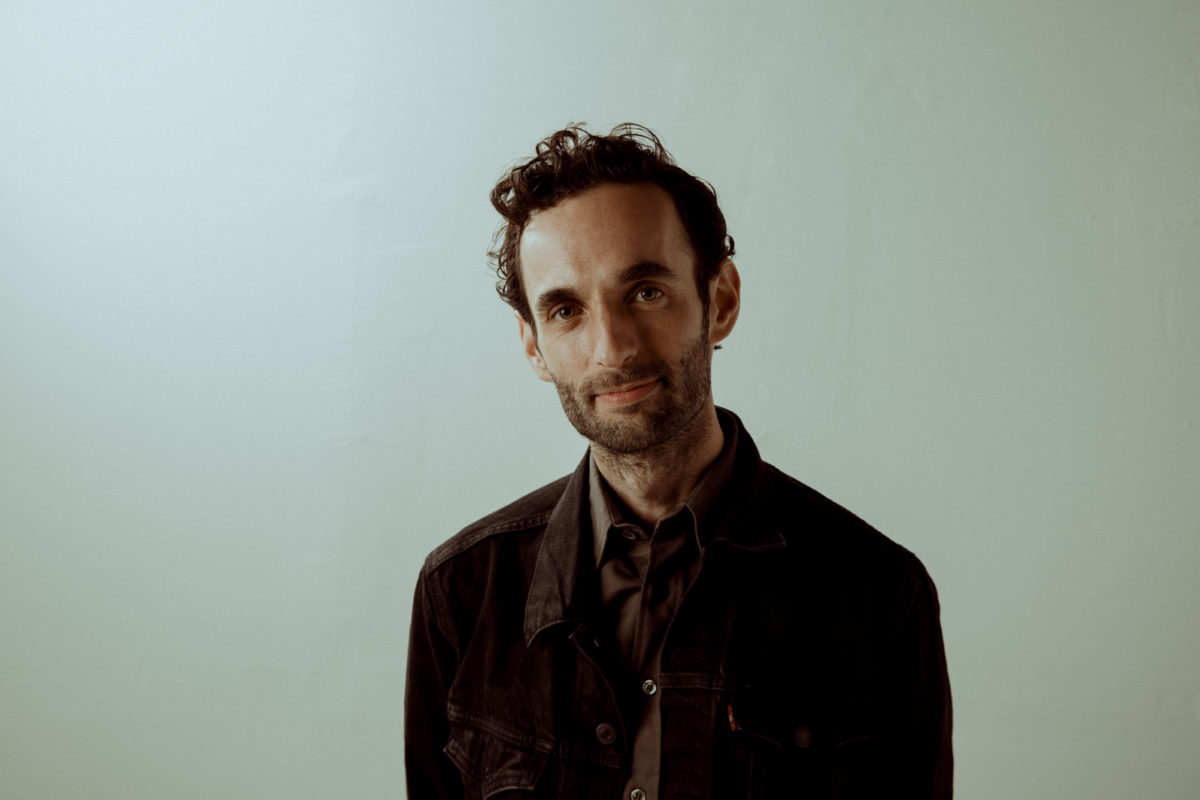Oct
20
Thu October 20th, 2016
9:00PM
Main Space
Minimum Age: 18+
Doors Open: 8:00PM
Show Time: 9:00PM
Event Ticket: $15
Day of Show: $20
John Medeski, Billy Martin, and Nels Cline join together for this one-night-only event. Special guests TBA.
John Medeski and Billy Martin

About John Medeski:
Solo concerts allow me to go deeper, to enter an inner universe, and bring some people along for the ride,” says pianist John Medeski. “You can work with sound and rhythm in a different way than in a band setting. It allows for a much more intimate experience.”
The celebrated musician, renowned for his work with trailblazing instrumental trio Medeski Martin & Wood (MMW), has been preparing a new solo piano album to be released on April 9, 2013 by OKeh Records, Sony Classics International. He’s also embarking on a suite of solo piano performances.
These creative excursions will no doubt elicit more praise like that bestowed by Chicago Tribune arts critic Howard Reich, who wrote of the 2005 Chicago Jazz Festival: “The revelation of the show came early, when pianist John Medeski … played a stunningly original solo set, establishing the virtuosity of his technique, the alacrity of his imagination and the depth of his knowledge of jazz history.”
Medeski has galvanized audiences in the U.S., Europe, Mexico, Japan and elsewhere with such solo performances, which he describes as “jazz, in the sense that stuff is left open for the moment,” but which reflect his classical training and passion for pop as much as his adoration of Monk and other jazz icons. These shows share one essential characteristic: “It’s just a piano in a room,” Medeski says. “Musically, it can go anywhere.”
His pursuit of spontaneous musical magic reflects, among other pursuits, his travels to the jungles and mountains of South America, where he has worked with various indigenous people– whose sonic traditions have been unchanged for centuries, and most of whom had never witnessed a concert before – and spent time with local shamans. “Seeing how music and sound are used as part of healing rituals really hit me,” Medeski recalls. “Like a reminder. These experiences have helped me focus on the more spiritual dimensions of creating music.”
Medeski’s restless muse has engendered a dizzying array of projects. Most recently he has collaborated with modern music giants Vernon Reid, Jack Bruce and Cindy Blackman-Santana to form Spectrum Road, and with avant-garde icon, contemporary classical composer and Mac Arthur Fellow John Zorn on Nova Express. Medeski also worked with Grammy-winning Peruvian singer Susanna Baca, renowned saxophonist James Carter, and legendary jazz guitarist John Scofield.
As a producer, he’s helmed projects by Chris Wood’s roots-oriented band The Wood Brothers, “sacred steel” family group the Campbell Brothers and the Dirty Dozen Brass Band, among others. He’s also made his mark as a film composer, crafting music for feature films Audrey the Trainwreck (for which the New Yorker praised his “wistful piano”), William Vincent, in which he also appears (“The vaguely mischievous, minimalist score by John Medeski,” opined Variety, “is richly atmospheric”), and Day on Fire. His other cinematic work includes a contribution (with erstwhile supergroup the Million Dollar Bashers, featuring members of Sonic Youth, Television, Wilco and others) to the soundtrack of the celebrated Bob Dylan biopic I’m Not There.
He was born in Kentucky but raised in Florida – and was staring down the ivories nearly from the beginning. “My dad had me sit at the piano with him when I was a baby,” the musician remembers. “He played stride piano and taught me to play ‘In the Mood’ with him. I started lessons at five, and even though I tried to quit at age nine, I never stopped after that.”
Though obsessed, by his adolescence, with the structural complexity of the great classical composers, young John seized every opportunity to play: dances, talent shows, marching band (on percussion), concert band (bassoon). He learned standards from family songbooks, meanwhile, but was bowled over when he first heard jazz piano legend Oscar Peterson’s take on the same material. “Holy shit, man,” Medeski exclaims. “It was so deep and soulful and grooving, and technically he’s ridiculous. That blew my mind; it was like, ‘How do I do that?’”
His parents indulged his burgeoning obsession with jazz, setting up lessons with a teacher who’d studied with Peterson. Immersion in the sublime sounds of Ellington, Basie, Bud Powell, Cecil Taylor and other luminaries of the form followed in short order.
In his mid-teens Medeski was part of a trio called Emergency, playing electric piano (only because most of the Florida venues they booked didn’t have pianos). He was only 16 when he played with legendary bassist Jaco Pastorius, who invited him to tour Japan – but the fledgling musician’s mother wouldn’t allow him to go.
Medeski began his studies at the New England Conservatory as a classical performance major. Realizing that he was more interested in studying the compositions themselves than in performing them, he quickly gravitated to the open-ended Third Stream program, which was designed to help artists forge their own style. It was there that he began to face a fundamental fact: “I’m not strictly a jazz musician,” he says. “I love Ray Charles, Marvin Gaye and A Tribe Called Quest as much as I love Coltrane. How do I put all that together? The Third Stream concept was to absorb what you love through the ear, and let it come out.”
He also came to understand – when he began his tenure with the acclaimed Boston-area outfit Mr. Jelly Belly’s Jazz and Blues Band – that his pursuit of complexity had limited his chops. “I was so busy understanding Schoenberg, Charles Ives, and Cecil Taylor” he explains, “that I couldn’t play a simple blues. I wasn’t able to express the fundamental music that was also part of my fabric.” His tutelage with teacher and jazz luminary Bob Moses helped Medeski focus on groove and simplicity. Meanwhile, as he played out – frequently seven nights a week – with Mr. Jelly Belly’s troupe, he began to experience the liberating power of the blues.
Jazz sideman gigs followed, and during one of these he met (and bonded heavily with) bassist Chris Wood. The two soon decided to relocate to New York, inspired by the city’s downtown arts scene. Eventually the pair, joined by Billy Martin, developed their own extraordinary hybrid of jazz, funk, hip-hop, avant-garde noise and a host of other styles. Thus began the first two decades of MMW’s inspired three-way partnership, one that has spawned numerous adventurous recordings and countless high-wire shows.
Medeski is keen to embark on this next solo chapter. “It’s a chance to connect in a new way with that fundamental feeling that made me want to play music in the first place,” he says. “When you connect with that, you can play with true freedom and openness, because everything will come from the deep place inside you where music comes from.”
“What’s music for?” The versatile musician asks rhetorically. “Making money? Entertainment? No. Music is a language, one that exists between the land of emotion and the land of intellect. It’s about creating vibration, an energy. Music is for healing and transformation.”
About Billy Martin:
Billy Martin was born in NYC in 1963 to a Radio City Rockette and a concert violinist. At age 17, he devoted himself to music and dove into Manhattan’s thriving, eclectic musical landscape. In the years to follow, he honed his craft everywhere from Broadway orchestra pits to Brazilian nightclubs and burgeoning underground performance spaces.
From the roots of the downtown scene he emerged with Medeski Martin and Wood, bridging the harmonic complexity of jazz, the conversational fluency of free improvisation, and the groove and swagger of classic R&B and funk. A series of albums and high-profile collaborations with John Scofield, John Zorn, iggy Pop, Natalie Merchant, and others, brought the band international acclaim.
Martin has relentlessly pursued diverse musical contexts, from free improvisation to chamber compositions to film scores. Much of his work is available via his Amulet Records label, which recently released the Road to Jajouka—a series of collaborations (produced by Martin) between the Master Musicians of Jajouka and such artists as Ornette Coleman, Flea, Marc Ribot, John Zorn, Lee Ranaldo, Bill Laswell, Mickey Hart, MMW and more.
Martin is also an accomplished filmmaker and visual artist, whose work has been exhibited in solo and group installations around the world including 2014’s Cartegena de indias Bienal in Colombia and the Drawing Sound series at The Drawing Center in NYC (2015)
What began for Martin as tireless enthusiasm for music, percussion, and improvisation evolved into a wide ranging search for the roots of inspiration. Among the most valuable undertakings in this ongoing exploration is teaching. “When I teach,” he explains, “I learn and discover methods to build my vocabulary and style, and I love to help others do the same”
His experiences as a teacher, student, and musician led him to create and direct Life on Drums, a cinematic exploration of percussion and the creative process with his childhood drum instructor, Allen Herman.
Nels Cline (solo)

Nels Cline official site | Nels Cline on Facebook | Nels Cline on Twitter
Guitar explorer NELS CLINE is best known these days as the lead guitarist in the band Wilco. His recording and performing career – spanning jazz, rock, punk, and experimental – is well into its fourth decade, with over 160 recordings, including at least 30 for which he is leader. Born in Los Angeles in 1956, Cline has received many accolades including Rolling Stone anointing him as both one of 20 “new guitar gods” and one of the top 100 guitarists of all time.
Beyond Wilco, he leads The Nels Cline Singers (featuring Scott Amendola and bassist Trevor Dunn), and plays with Fig (a collaboration with Yuka Honda), BB&C (a collective with Time Berne & Jim Black), Pillow Wand (duo with guitarist Thurston Moore), and a new duo project with jazz guitar prodigy Julian Lage. A few of the other musicians with whom he has performed and/or recorded include: Ramblin’ Jack Elliot, Yoko Ono, Jeff Gauthier, Mike Watt, Carla Bozulich, Vinny Golia, Marc Ribot, Tinariwen, Julius Hemphill, Charlie Haden, Wadada Leo Smith, Lydia Lunch, and Lee Ranaldo.
Photo credit Yuka C. Honda
Chris Lightcap

Chris Lightcap is a bassist and composer with a wide-ranging performing and recording career. He has worked with Regina Carter, Craig Taborn, Marc Ribot, Glen Hansard, Mark Turner, John Medeski, Jason Moran, The Kronos Quartet, Tomasz Stanko, Chris Potter, Paul Motian, John Scofield, Dave Liebman, Jon Irabagon, Paquito D’Rivera, Anthony Braxton, Joe Morris, Joshua Bell, Sheila Jordan, James Carter, Butch Morris, Ben Monder, Mary Halvorson, Julian Lage, Terrel Stafford, Ralph Alessi and many other artists.
Lightcap’s releases as a leader and composer have been featured on year-end top album lists by The New York Times, Rolling Stone, NPR, Downbeat, Jazztimes, the Village Voice and The Wall Street Journal. These include Lay-Up (2000), his debut quartet album on Fresh Sound featuring Tony Malaby, Bill McHenry and Gerald Cleaver, followed up by Bigmouth (2003). This group expanded to a quintet with Craig Taborn and Chris Cheek on Deluxe (2010) and Epicenter (2015) which were released on the Clean Feed Label under the name Chris Lightcap’s Bigmouth. In 2014 Lightcap assembled Superette, an all-electric band featuring Jonathan Goldberger and Curtis Hasselbring on guitars and Dan Rieser on drums. Superette released its debut recording on Royal Potato Family Records in 2018 featuring guests Nels Cline and John Medeski. Finally, Lightcap’s most recent release is SuperBigmouth (2019) on the Pyroclastic label. This album features an octet that combines both the Bigmouth and Superette ensembles. Lightcap has led various groups at major festivals around the world including Earshot, Willisau, Saalfelden, North Sea, Porto, Geneva, Ljubljana, Maribor, Edinburgh and Guimaraes.
He currently performs with a variety of groups, including Regina Carter’s touring and recording ensembles, the Matt Wilson Quartet, Nels Cline’s Consentrik Quartet, the Jon Irabagon Quartet, Craig Taborn’s Daylight Ghosts and the Ghost Train Orchestra.
In 2011 and 2016 Lightcap was awarded Chamber Music America’s “New Jazz Works” commission grants. He has also received generous composing and production grants from The Shifting Foundation. In 2006 Lightcap was commissioned to write “Wiretap” for the contemporary chamber ensemble counter)induction and he has also contributed compositions and arrangements to albums released by Regina Carter, Matt Wilson, Chad Taylor, Mary Halvorson, Rob Brown and others.
Steven Bernstein

Steven Bernstein official site
Steven Bernstein is a trumpeter/slide trumpeter, bandleader, arranger, and composer who lives outside of musical convention. He has released four critically acclaimed CDs; Diaspora Soul, Diaspora Blues (featuring the Sam Rivers trio), Diaspora Hollywood, andDiaspora Suite. All four are on John Zorn’s Tzadik label.
His band Sexmob has been together since 1995 touring the world, winning numerous awards, and has had their music featured on MTV, Saturday Night Live and NPR. Sexotica, recorded for Thirsty Ear’s Blue series, was nominated for a Grammy in 2006. Their most recent CD, Sex Mob Plays Fellini was released in 2013.
His nine-piece ensemble, the Millennial Territory Orchestra, has released two CDs, MTO Vol 1 and We Are MTO. Their latest CD, MTO Plays Sly, features Bernie Worrell, Vernon Reid, Antony, Martha Wainwright, Dean Bowman, Sandra St. Victor and Shilpa Ray. MTO was formed in 1999 for a series of Midnight shows at Tonic, and spent a year and a half long residency at the Jazz Standard. Bernstein also arranged and co-produced Baby Loves Jazz, featuring vocalists Sharon Jones and Babi Floyd, along with keyboard master John Medeski. The CD is available on Verve records.
Bernstein’s newest project is Butler/Bernstein & the Hot 9, a collaboration with the brilliant New Orleans pianist Henry Butler. Their debut recording, Viper Drag, was released in May 2014 on the new Impulse! record label.
Bernstein was the musical director for I’m Your Man, a documentary on Leonard Cohen that focuses on a tribute concert held at the Sydney Opera house, released by Lions Gate films in spring 2006. He was the musical director for the live sequences in the 2009 Bill Withers documentary Still Bill. Other DVDreleases include Solos, originally a Canadian Television program featuring solo performances by musicians including Andrew Hill, Joe Lovano, and John Scofield, as well as Lou Reed’s Berlin (directed by Julian Schnabel) and Levon Helm Ramble at The Ryman. Bernstein was also the subject of a feature entitled “Creative Spaces” on NPR’s “All Things Considered,” and was interviewed by Terry Gross onNPR in 2002.
Since November 2004 Bernstein has been a member of the Levon Helm band, playing at the Midnight Rambles in Levon’s home in Woodstock. Bernstein wrote horn arrangements for Levon Helm’s Grammy winning 2009 recording Electric Dirt and 2011’s Ramble at the Ryman, as well as Bill Frissel’s Grammy winning 2004 recording Unspeakable. Other arranging credits include Lou Reed, Rufus Wainwright, Marianne Faithfull, Elton John, and Marvin Pontiac.
In 1992, musical iconoclast Hal Willner produced the eponymous debut CD by Spanish Fly, a cooperative trio with Bernstein, slide guitarist Dave Tronzo and tubaist Marcus Rojas, and they have been collaborating ever since.
Bernstein has worked as musical director on many Hal Willner projects, including tributes to Leonard Cohen, Doc Pomus, Nino Rota, Shel Silverstein and Harold Arlen, and created the music for Robert Altman’s film Kansas City. He was also the musical director for the touring version of the Kansas City band, which included David “Fathead” Newman, Henry Butler, Don Byron, James Carter, Christian McBride, and Nicholas Payton.
During his 10 years as a member of John Lurie’s Lounge Lizards he arranged the music for Get Shorty, Clay Pigeons, Fishing With John and many more film, television and commercial projects with Mr. Lurie.
For composer/Foetus mastermind Jim Thirwell, Bernstein arranged Steroid Maximus to be performed live by a 21 piece ensemble.
Bernstein’s work as a composer includes the documentaries Keep the River On Your Right andBalloonhat, Nickelodeon’s hit TV show The Backyardigans (including an ANNIE nomination for his score to “International Super Spy”), live scores to silent Laurel & Hardy films, theatre scores for Mae West’s Sex and Trouble in Paradise, dance pieces for Alvin Ailey, Body Vox, the Donald Byrd Dance Company, the Flying Karamazov Brothers and the San Francisco Ballet, and commercial jingles.
Bernstein has played trumpet with a diverse group of artists including My Morning Jacket, Linda Ronstadt, David Murray, David Berger, Digable Planets, Sting, Medeski Martin and Wood, Courtney Love, Ryuichi Sakamoto, Don Byron and Mocean Worker.
Awards include:
*DOWNBEAT CRITICS POLL 2006 (#1 Rising Star Arranger, #4 Rising Star Trumpeter)
*DOWNBEAT CRITICS POLL 2005 (#1 Rising Star Arranger)
*DOWNBEAT CRITICS POLL 2004 (#1 Arranger, #2 Big Band – Millennial Territory Orchestra)
*JAZZ JOURNALISTS ASSOCIATION 2003 (Rare Brass)
*DOWNBEAT CRITICS POLL 2002 (Sex Mob #1 Beyond Group, #1 Acoustic Jazz Group)
Photo Credit: Harald Krichel
Julian Lage

Julian Lage official site | Julian Fage on Facebook
Hailed as one of the most prodigious guitarists of his generation and “highest category of improvising musicians” (New Yorker), Julian Lage has spent more than a decade searching through the myriad strains of American musical history via impeccable technique, free association and a spirit of infinite possibility. The California-born New York-based musician boasts a prolific resume on his own accord in addition to collaborating with Gary Burton and John Zorn, as well as duo projects with Nels Cline, Chris Eldridge and Fred Hersch, among others.
As Lage set out to record his debut for Blue Note Records, the virtuoso guitarist reflected on the label’s storied history and the way his own music connected with it. The result is Squint, a striking new album that weds incisive, expressive songwriting with the profound interplay Lage has honed over the past few years with his deft trio featuring bassist Jorge Roeder and drummer Dave King.

